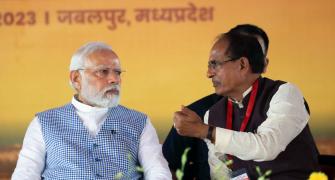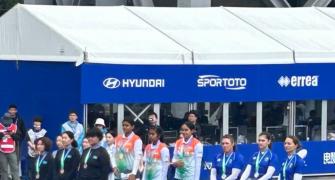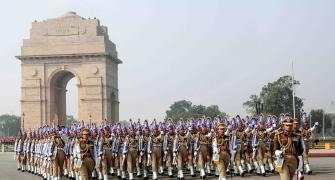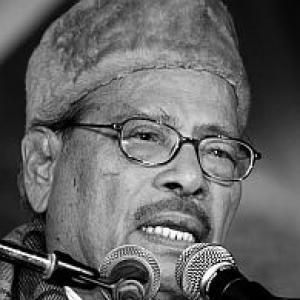Going to a MyDentist clinic is like going to a coffee shop and ordering a cappuccino, says chief Vikram Vora. The prices are same everywhere in Mumbai
In 2009, Vikram Vora was cold calling dentists, travelling to their clinics, sitting for hours in their waiting rooms and hoping to sell dental equipment to them. His family business was making around Rs 1 crore annually. “I would take home Rs 50,000-60,000 a month, which was enough for my family,” he says.  Today, Vora is the chief executive officer of MyDentist, one of the pioneering retail dentist chains in the country, with 45 outlets across metropolitan Mumbai, spanning upmarket Warden Road to far-flung Bhayender.
Today, Vora is the chief executive officer of MyDentist, one of the pioneering retail dentist chains in the country, with 45 outlets across metropolitan Mumbai, spanning upmarket Warden Road to far-flung Bhayender.
Each clinic brings in anywhere between Rs 300,000 and Rs 800,000 in revenue a month and Vora is targeting sales of Rs 50 crore (Rs 500 million) and 100 clinics by year-end. His dental chain has been successful enough to attract Rs 50 crore a few months ago in the second round of funding from Seedfund, (which incubated it in 2009 for Rs 1 crore) and the Asian Healthcare fund.
Going to the dentist can be a painful affair, and not just because of root canals and pulled teeth. Ninety-five per cent of dental clinics in India are single-doctor outfits, according to Anurag Dubey, industry manager, healthcare practice, Frost & Sullivan, and they often operate like feudal fiefs. “Patients are told to sit down, decisions are made for them and then they’re told to pay,” says Vora. There is little transparency, regularity in pricing or even information-sharing about the problem at hand and the range of options to address it. For a middle-class family, it seems too intimidating an experience to negotiate unless absolutely necessary.
Vora’s solution: a retail chain that offers free check-ups and a menu of options that gives you full disclosure. “MyDentist has a standard pricing policy. It’s like going to a coffee shop and ordering a cappuccino,” he says. First, check-ups and X-rays are completely free. Then, when fitting a crown for instance, the patient is given all the options - from a Rs 900 metal cap to a Rs 3,000 ceramic one - even if the ceramic one is favoured by the dentist. The patient is then given the options in a print-out to mull over that night with her family before she comes back and picks one. MyDentist takes the credo of batting for the customer seriously enough to unleash audit teams on every such print-out to ensure that the patient has in fact been given the freedom of choice from the full set of options.
Vora and his investors are betting that this customer-friendly approach is guaranteed to be one of the biggest disrupters in the health care field, and strong enough a proposition to woo a big chunk of India’s mouths. This is a country where almost 50 per cent of the population has never visited dentists and 70 percent suffers from dental diseases. In urban India with large middle-class populations, the ratio of dentists to individuals is around 1 to 10,000 and, therefore, hugely underserved.
This means big business. According to Frost & Sullivan, Indian dental care services market, constituted by dentists and dental ancillary services, was estimated to be Rs 6,000 crore today and is expected to reach Rs 9,000 crore by 2015. As urban populations become more fashion conscious, there is also growing demand for cosmetic dentistry such as whitening and fixing chipped teeth. Also, dental tourism forms 10 per cent of the total medical tourism industry in India and is projected to grow at 30 per cent a year.
For MyDentist to be successful in the long run, they have to be operationally at the top of their game. “This is largely an execution play where there is a focus on quality, process and managing costs,” says Pravin Gandhi, partner at Seedfund, which incubated MyDentist with Rs 1 crore in 2009.
Vora takes his coffee analogy seriously enough to have hired several area and cluster managers for his business from Café Coffee Day. Enhancing operational efficiency is a hospital management software on the cloud that forms the technical backbone for the dental chain. A dentist can pull up a patient’s record on his Galaxy Note, for instance, from any location. It also makes stock keeping, invoice generation and supply chain management a breeze.
Today, MyDentist has few direct competitors. Axiss Dental is a chain that is expanding in the Delhi region. Clove, an upmarket chain promoted by Star Dental, plans on opening up 10 clinics. Apollo Hospitals and Trivitron, which makes medical equipment, have created Alliance Dental Care.
But few have grown at the speed of MyDentist or shown a willingness to cater to the unfashionable middle classes. That said, Narayana Hrudayalaya plans on opening up a chain that focuses on tier-I and -II towns. A pioneer in low-cost health care, Hrudayalaya could easily up the ante in any category it decides to enter.
For now though, Vora says MyDentist is comfortable being a regional player with a focus on Mumbai and Pune.
Despite being the industry leader, the company does have formidable challenges, many of which confront most retail chains - such as maintaining operational excellence, retaining talent and management bandwidth and managing spiralling costs - especially that of real estate - in crowded urban spaces. As the chain mushrooms, these things become more difficult to manage.









